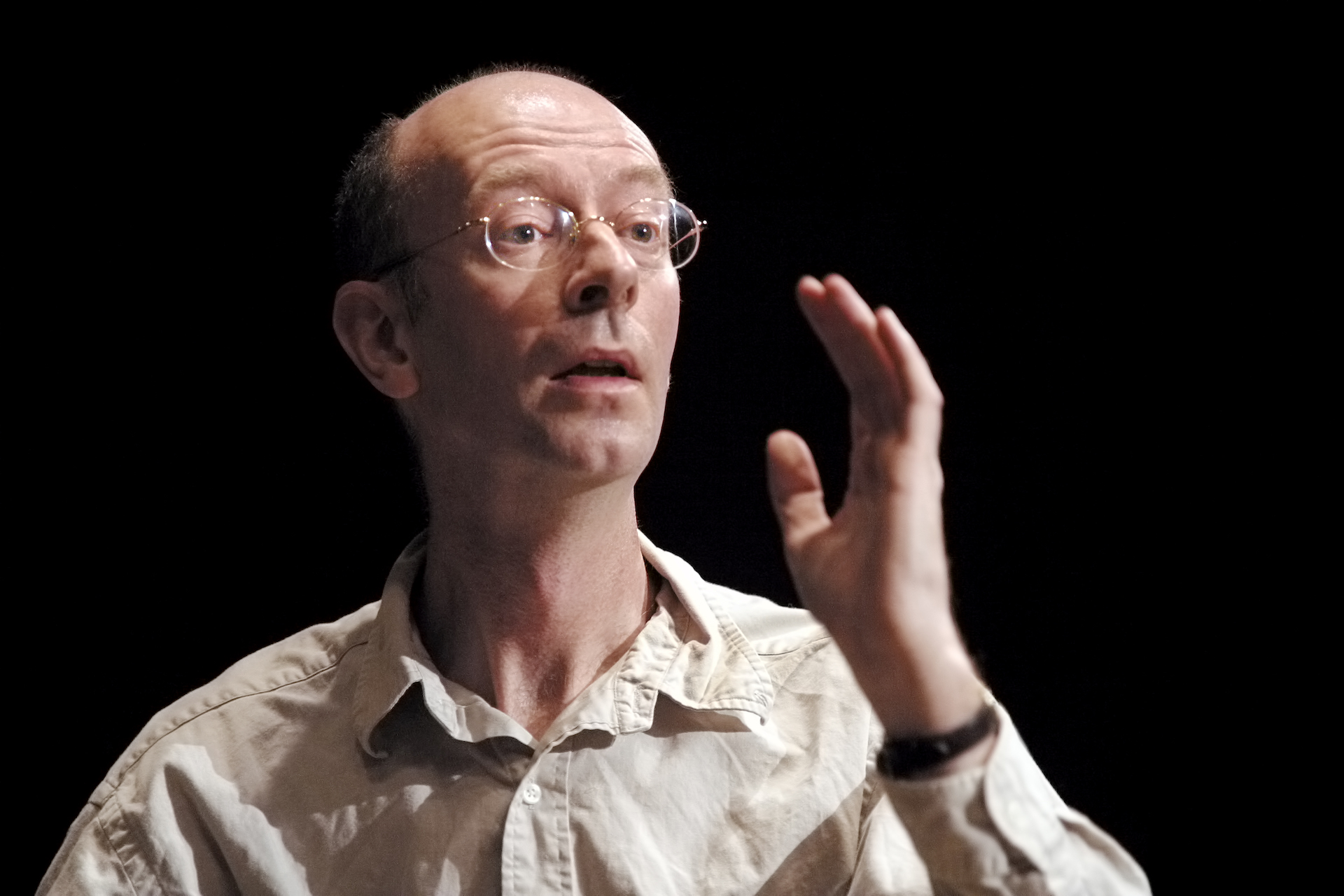Conductor, composer, instrument designer, musicologist and formerly virtuoso percussionist, James Wood’s multi-faceted career has led him into an extraordinarily broad spectrum of musical activities. Born in 1953 he studied composition with Nadia Boulanger in Paris before going to Cambridge as an organ scholar, and to the Royal Academy of Music in London to study conducting and percussion. For the next twenty years he pursued a triple career as composer, conductor and solo percussionist. After four years as conductor of Schola Cantorum of Oxford (1977-81) he founded the New London Chamber Choir (1981), which was soon to become celebrated throughout Europe for its ground-breaking performances and recordings of contemporary music, and which he directed for 26 years until leaving England and settling in Germany in 2007. During this period he was also professor of percussion at Darmstadt (1982 – 1994), founder and director of the Centre for Microtonal Music in London and it’s ensemble, Critical Band (1990-1994), whilst remaining prolific as a composer. Since the mid-1990s he has focussed more on composition and conducting, working with ensembles such as musikFabrik, London Sinfonietta, Ensemble InterContemporain and Champ d’Action. As a choral conductor he works regularly with most of Europe’s leading chamber choirs, such as RIAS Kammerchor, Netherlands Chamber Choir, Cappella Amsterdam, Latvian Radio Choir, Helsinki Chamber Choir and Vocalconsort Berlin, in repertoire from 15th Century to the present day. He has worked closely with composers such as Kurtág, Xenakis, Ligeti, Kagel, Harvey, Stockhausen and Reich, and in 2002 he prepared and conducted the Netherlands Radio Choir in the world premiere of Stockhausen’s Engel-Prozessionen at the Amsterdam Concertgebouw. He went on to direct the same work in the context of Cologne Opera’s 2011 production of the complete Sonntag aus Licht with the Estonian Philharmonic Choir and Cappella Amsterdam. As a composer he has written for almost every conceivable genre, and is especially known for his percussion music, his designing and building of new instruments, and for his work in electronics. He has twice been commissioned by the Proms in London, first in 1989 for his orchestral work Oreion, later in 1995 for his Two men meet, each presuming the other to be from a distant planet. His first opera, Hildegard was performed with huge success throughout Great Britain, Holland and Belgium in 2005-6, and he is currently working on a chamber opera based on Gullivers Travels, commissioned by the dutch ensemble, Insomnio, to a libretto by Paul Griffiths, due to be premiered in November 2014. As musicologist, his recent completion of Gesualdo’s Sacrae Cantiones (Liber secundus) – a project which took three years to complete – and his subsequent recording of the complete collection with Vocalconsort Berlin for Harmonia Mundi (released February 2013) has been universally hailed as a sensation, and ‘one of the most astounding reconstructions of our time’ (Die Zeit*), and recently won him the prestigious ECHO-Klassik Prize in the category “Choir recording of the year”. It brings to life no less than one third of Gesualdo’s sacred music, which has lain unperformable for the last 400 years.
